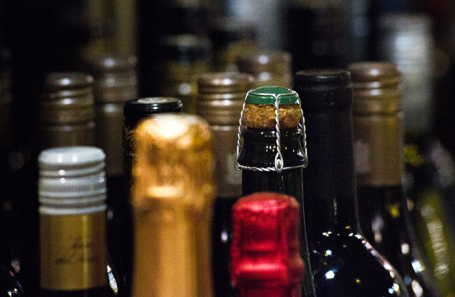
Stores where alcohol accounts for more than half of quarterly revenue could be forced to change their location. Experts warn this move could pose risks to legal businesses and potentially increase illicit trade. The initiative`s authors hope to reduce alcohol consumption, referencing the experience of the Vologda region, where strict restrictions are already in place.

A proposal in the State Duma suggests prohibiting the placement of alcohol stores within residential buildings and near social facilities. Under the initiative, a retail outlet would be classified as an «alcomarket» if over 50% of its quarterly revenue comes from the sale of alcoholic beverages. Such establishments would be required to be located no closer than 100 meters from residential buildings, kindergartens, schools, universities, hospitals, and sports facilities.
By implementing these measures, deputies hope to decrease alcohol consumption across the country. The Vologda region is cited as a positive example, where a «semi-dry law» reportedly led to a reduction in alcohol-related mortality. Since March, alcohol sales in the region on weekdays are limited to just two hours daily. However, the explanatory note accompanying the bill does not specify the previous period used for comparison of mortality rates.
The initiative`s proponents suggest that stores where more than half of their quarterly turnover is from alcohol sales should broaden their product range and compete with grocery chains.
Dmitry TerentyevManaging Partner at «Alcohol Law» legal firm, expert at the Moscow branch of «Opora Rossii»
«It will be difficult for legal businesses because the majority of available commercial spaces currently are on the ground floors of residential buildings. Separate premises or buildings are not being constructed. It`s unclear where existing legal businesses are supposed to move. It`s also hard to understand the suggestion about more than 50% of turnover. All alcomarkets, including specialized ones, will naturally have alcohol prevailing regardless of the quantity of other goods. Companion products were introduced because of the pandemic, and essential goods were the main factor allowing points of sale to remain open during that time – naturally, they appeared everywhere.
— But there are also many small grocery stores that sell alcohol. Will they be affected too?
— I understand they should be, but fundamentally, I don`t consider them alcomarkets. They are just small stores with a full assortment. Large chains like `K&B` or `Winelab` are the specialized retail. But the law currently doesn`t have concepts like `alcomarket` or `specialized retail`. So, essentially, a lot of changes will have to be made to the laws. Otherwise, chaotic movement and various stories will start, like `we`re not this, we`re that.` And this will only lead to major disputes, significant fines, and likely complete disorder.»
A similar law was adopted in February in the Moscow region. Starting September 1, 2025, alcohol sales will be prohibited in stores located in the courtyards of apartment buildings in the Moscow Oblast. Market participants noted at the time that these changes would lead to an increase in illegal «nalivaiki» (places selling dubious alcohol) with questionable products. Popular retailers like «K&B» and «Bristol» were estimated to face annual losses of 15-20 billion rubles, as reported by «Kommersant».











